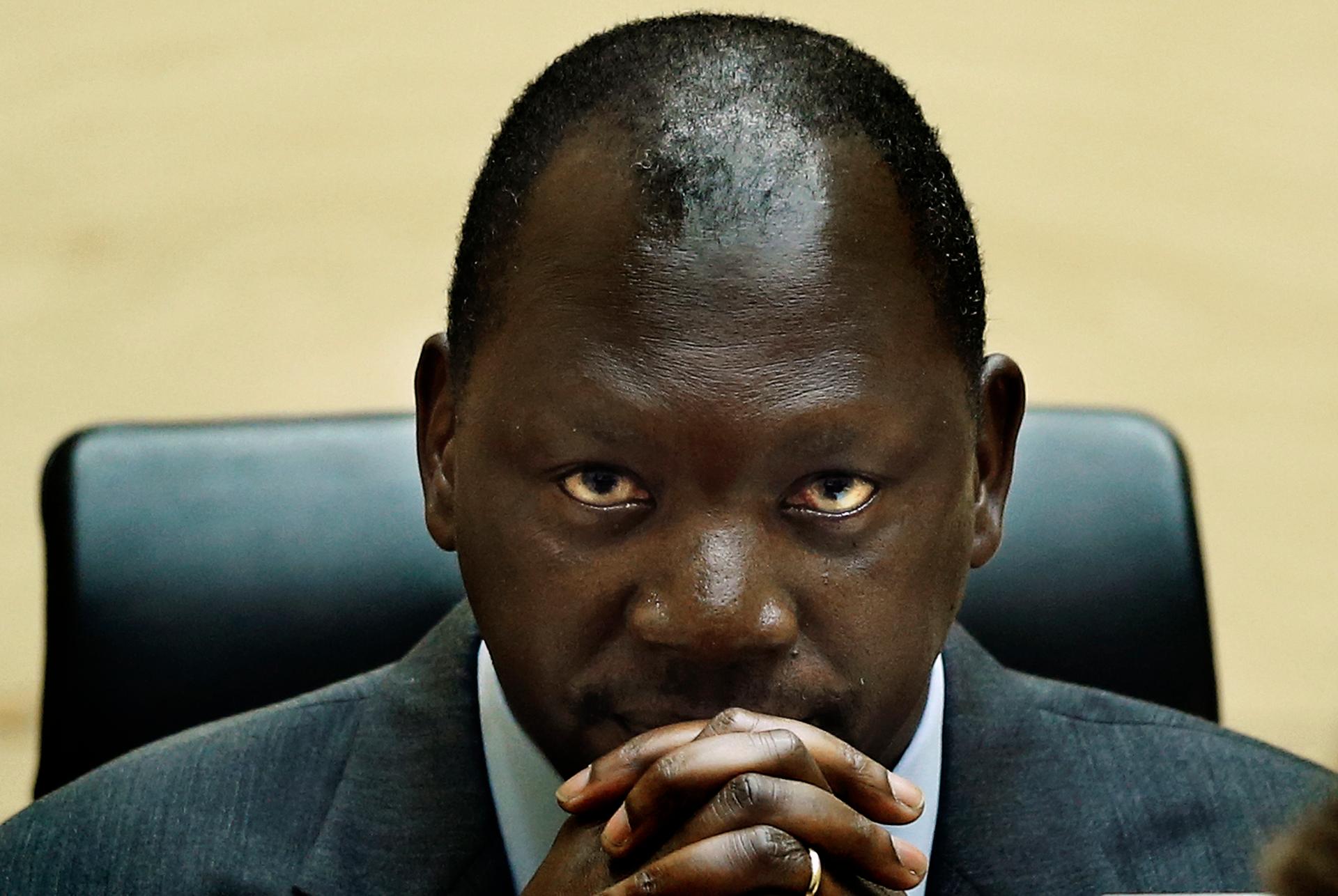VIDEO: Congolese warlord sentenced to 14 years in prison
Congolese warlord Thomas Lubanga listens to the first sentence delivered by the International Criminal Court at its courtroom in the Hague. (Pool photo by Reuters.)
The International Criminal Court passed down its historic first ruling Tuesday, sentencing Congolese warlord Thomas Lubanga to 14 years in prison.
On March 14, the court found Lubanga guilty of conscripting and enlisting children under the age of 15 for use in his rebel army between 2002 and 2003. His sentence includes a six-year credit for the time he has already served in custody, meaning he’ll be eligible for release in eight years.
“The sentencing of Thomas Lubanga by the International Criminal Court will be welcomed by Lubanga’s victims,” said William Hague, the foreign secretary for the United Kingdom. “It is a powerful reminder that those who commit the most serious international crimes will be held accountable for their actions.”
But some human rights groups say Lubanga’s use of child soldiers as young as 11 is only the beginning of his criminal record. Human Rights Watch has accused him of “ethnic massacres, murder, torture, rape and mutilation” in Congo’s northeast Ituri region.
Lubanga’s legacy led some ICC observers to question the 14-year sentence. Prosecutors had asked for 30 years and are studying the judgment while they consider whether to appeal the decision, according to an official statement.
“Given the scale of the violence in Congo, the suffering that the Congolese people have endured, a 14-year sentence for Thomas Lubanga does seem as though it’s short,” said Mark Quarterman, research director of the Enough Project, a human rights organization that focuses on the Congo.
But despite its length, Quarterman said, the sentencing was a “landmark” moment for the ICC. It was the first time the court sentenced a convicted war criminal since its establishment in 2002.
“I balance what seems to me to be a somewhat short sentence against the importance of a sentence being brought down and the man being put in prison for the crimes he’s committed,” Quarterman said.
Lubanga’s sentence sets the stage for the remaining three Congolese warlords who are also on trial at the ICC. Lubanaga’s case also brought increased calls for the arrest of Bosco Ntaganda, a much more infamous Congolese rebel leader, the Associated Press reported.
